DERRY GAA: The Celtic Park punt that changed GAA in the Oak Leaf county
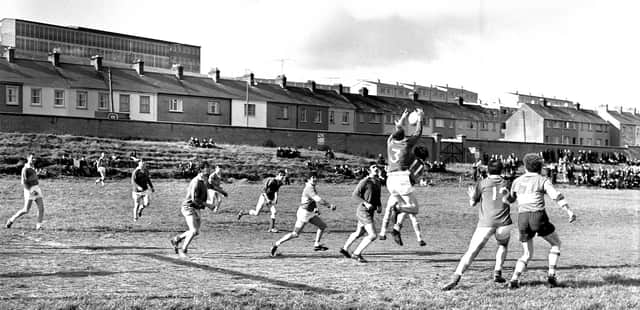

But three years later 'Phonsie' and a small band of dedicated Gaels took a punt on the people of the city that changed the landscape of Derry Gaelic games.
Originally the stronghold of the Oak Leaf county, GAA in the city had collapsed in the 20s as the effects of partition took hold and soccer swept the town. Ironically though it was an earlier twist of fate for a local soccer club that would lay the foundations for Phonsie and the city Gaels to take their leap of faith.
Advertisement
Hide AdAdvertisement
Hide AdDerry Celtic were the biggest soccer club in the town and sought to have that status reflected by admission to the Irish League in 1913. The Irish League refused them and, outraged by the rejection, Celtic promptly became a GAA club. The upshot? Celtic's home pitch - a certain Celtic Park - suddenly became available to the GAA. But back to Phonsie.
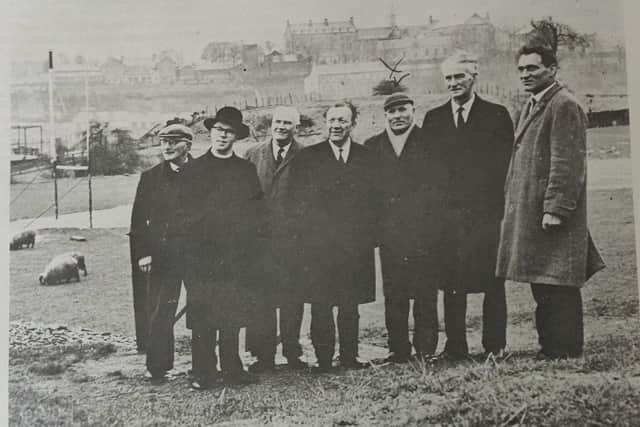

It was a love of the Irish language that first brought him into contact with the GAA but now, as City Secretary under the Chairmanship of Jack Timmons, rumour reached him that Celtic Park was available to purchase for £1,000. There was only one problem. The City Board had £2 to its name!
Undeterred (and most likely without informing anyone of their finances!) a sale was agreed. Now they just had to find the money. Step forward Board member Eddie McAteer, who would go on to later lead the north's Nationalist Party and become an MP.
Led by McAteer, there wasn't a door in Derry that didn't get a knock, a town fair that wasn't visited and a business propositioned for contribution. The gamble paid off. Subscriptions brought in £733 while door to door collections amounted to £291. The people of Derry had purchased Celtic Park, as Phonsie himself explained in his 1943 report to the Derry convention.
Advertisement
Hide AdAdvertisement
Hide Ad"When we bought Celtic Park we had no money," wrote Phonsie, "So we boldly put our judgement to the acid test and charged the cost to the Derry people. Everyone knows now that we were fully justified. In just seven weeks we had paid for our Park."
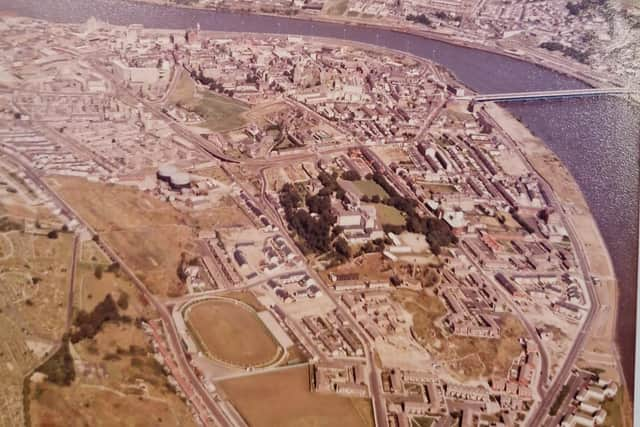

Thus began a colourful, sometimes controversial, story of a ground which has defied even its own county at times to become one of the country's iconic GAA locations.
***************
Ballymaguigan's 1970 Junior Championship victory - a game in which the St. Trea's were led by a certain Eamonn Coleman - was played out to the backdrop of an ongoing gun battle along the Lone Moor Road. It would be the last significant fixture in Celtic Park for close to 20 years. Amid the growing civil unrest and Troubles that followed, Celtic Park became another victim.
Advertisement
Hide AdAdvertisement
Hide Ad"It was deemed too dangerous to keep it open. The same reason the Brandywell had been closed," reflects former Derry Chairman Sean Bradley.
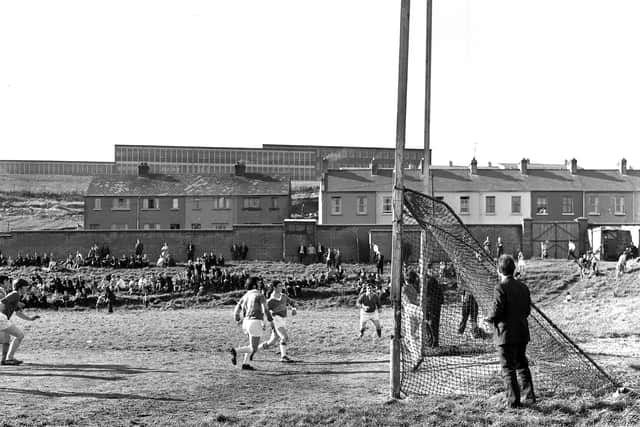

Already in need of repair and development, the situation on the ground in the city saw the 'Park', which once boasted tennis courts where the main car park now sits, become derelict.
"If you take it from 1969, the Bogside and Brandywell were 'No Go' areas. Then you had Internment, you had Bloody Sunday and at that stage the only clubs on the go were Dolan’s and Colmcille," according to the former Celtic Park Chairman Damien McKane.
"In 1981 there were Hunger Strikes but even Na Magha wasn't on the scene until a bit later so there was no real need. Celtic Park was well down the list for any young nationalist."
Advertisement
Hide AdAdvertisement
Hide AdAnd the state of the Park reflected that status for almost 20 years. A road widening scheme on the Lone Moor Road saw the outer wall demolished and scattered across the site which was now an open space. Greyhounds were trained and kids dug holes amid the large boulders left unclaimed by the roadworks. Celtic Park was a derelict site, more useful as a rat run to other parts of the city than a once proud sporting venue. Not a ball was kicked on it from 1970 until 1989.
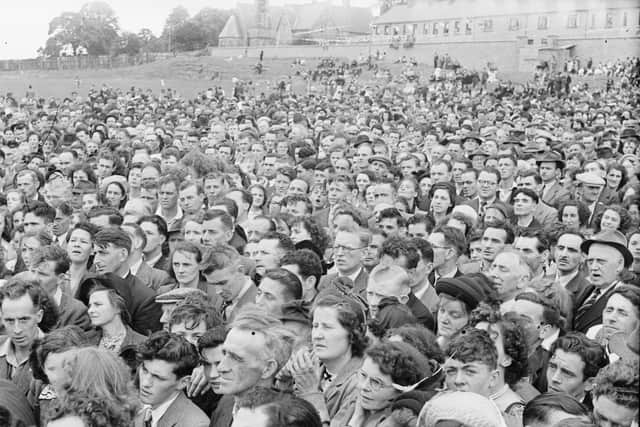

But things began changing mid-80s. The GAA, sick of paying out on injury claims emanating from the site, issued newly elected County Chairman Bradley with an ultimatum: 'Develop it or sell it!'
That was around the time of the Association's 1984 centenary and it's notable in the foreword to Derry's County book to mark the occasion, Bishop Edward Daly wrote the following:
"Might I take this opportunity to make a special appeal for Celtic Park in Derry city. The Association flourished in the early 1940s. The purchase of Celtic Park was a major achievement at the time it was acquired. It is sad to see it as it is today. It is in a sorry state - almost a derelict site.
Advertisement
Hide AdAdvertisement
Hide Ad"If I were to suggest one major project to the Derry GAA County Board, it would be the restoration of Celtic Park in Derry city. Such a move would give a major boost to those who are endeavouring to promote Gaelic Games in the city."
Bishop Daly's words proved prophetic. Following the GAA's ultimatum the Celtic Park Development Committee was formed and backboned by names like Mellon, McFadden, McChrystal, McKane and McNaught, Celtic Park was transformed.
"At that time Frank Murphy of Cork was Chairman of the Development Committee in Croke Park. He understood urban Gaelic Games, got us grants and it took off from there. We closed it all up, we ploughed it all up and redeveloped it. The first official match was the Ulster Championship first round against Fermanagh in 1989," adds Bradley.
Further redevelopment such as the main Tommy Mellon Stand took place in the 1990s. It wasn't all greeted by universal approval within the county, still isn't, but Bradley remains a strong believer in the power of 'The Park'.
Advertisement
Hide AdAdvertisement
Hide Ad"The potential was always huge, and it remains so. When we took the decision back in the '80s we believed that young people seeing great footballers and great football would inspire and regenerate GAA within the city better than anything else we could do. We knew it wasn't going to be a short or even mid-term fix. It was never about that. This was always about the long term."
Celtic Park and city GAA remain inextricably linked and it has (is having) the desired effect. Many still don't believe that but those who question the success of that County Board decision miss the point. It's worked, but it's a generational change. Participation levels are now rocketing within schools and clubs. The city has seven blossoming clubs. Of those, Sean Dolan's, Steelstown, Doire Colmcille, Doire Trasna and Na Magha all own and operate their own grounds with ever growing membership numbers. Steelstown were All Ireland Intermediate Club champions a couple of years ago and currently have four players on Mickey Harte's county panel. The signs are everywhere.
Another 11,000 plus will crowd into 'The Park' this weekend to welcome the All Ireland champions to town. Regardless of result, the final whistle will signal a tsunami of young faces seeking autographs and selfies with their heroes. Many, many of those will be city kids. Back in the days of the siege, the site on which Celtic Park now sits was once an orchard. Seems the place is still bearing fruit to this day.
And all because Phonsie took a punt on the people of Derry.